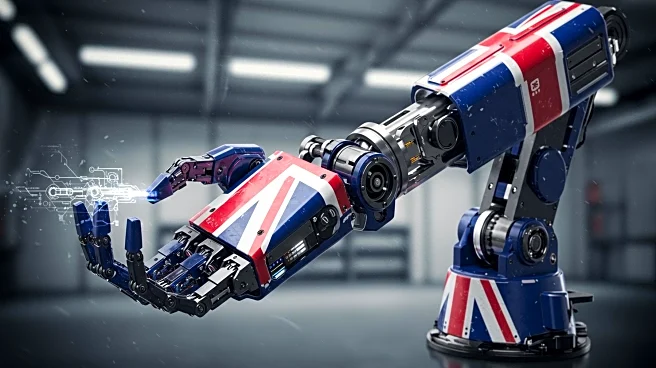What's Happening?
British manufacturing companies have been struggling to keep pace with international competitors in terms of automation and digital skills. A report highlights that the UK has fallen behind in the global automation tables, with insufficient use of robotics and AI systems. The lack of training in relevant digital skills is a significant barrier to leveraging innovative technologies. Despite these challenges, manufacturing remains the UK's leading export engine, with a high share of firms trading internationally.
Why It's Important?
The lag in adopting robotics and AI in British manufacturing has implications for the country's competitiveness in the global market. As automation becomes increasingly crucial for efficiency and productivity, the UK's position in the global manufacturing landscape may be at risk. Companies that fail to integrate advanced technologies could face higher operational costs and reduced competitiveness. On the other hand, the strong export performance of the manufacturing sector underscores its importance to the UK economy, highlighting the need for strategic investments in technology and skills development.
What's Next?
Efforts to address the digital skills gap and enhance automation in British manufacturing are likely to be prioritized. Initiatives such as Made Smarter, which supports digital transformation, could play a key role in modernizing the sector. The government and industry leaders may focus on policies that encourage investment in robotics and AI, aiming to boost productivity and secure the UK's position in the global market.
Beyond the Headlines
The slow adoption of robotics and AI in British manufacturing raises broader questions about the future of work and the need for digital literacy. As industries evolve, there is a growing demand for workers with skills in technology and automation. Addressing these challenges requires a comprehensive approach that includes education reform and workforce training programs to prepare for the digital economy.









